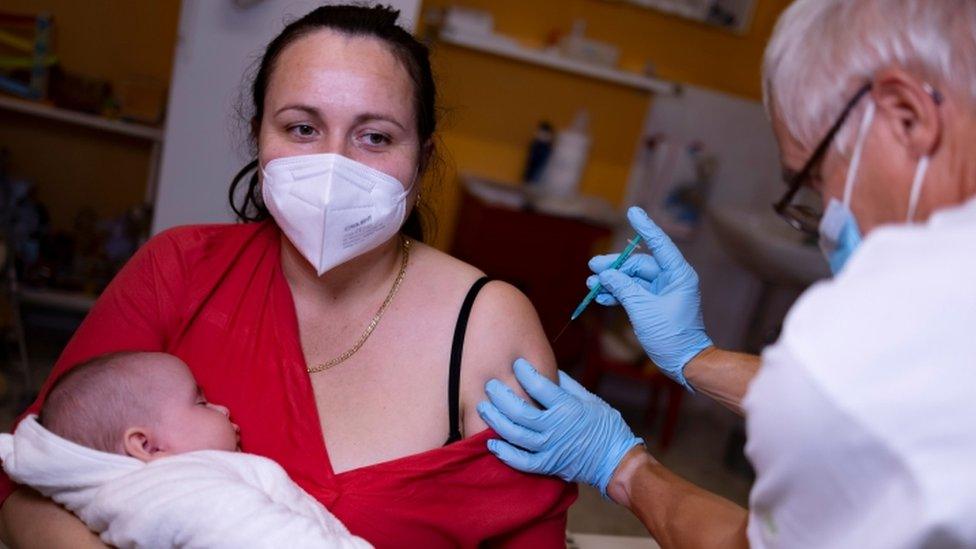Covid: The country locking down the unvaccinated
- Published
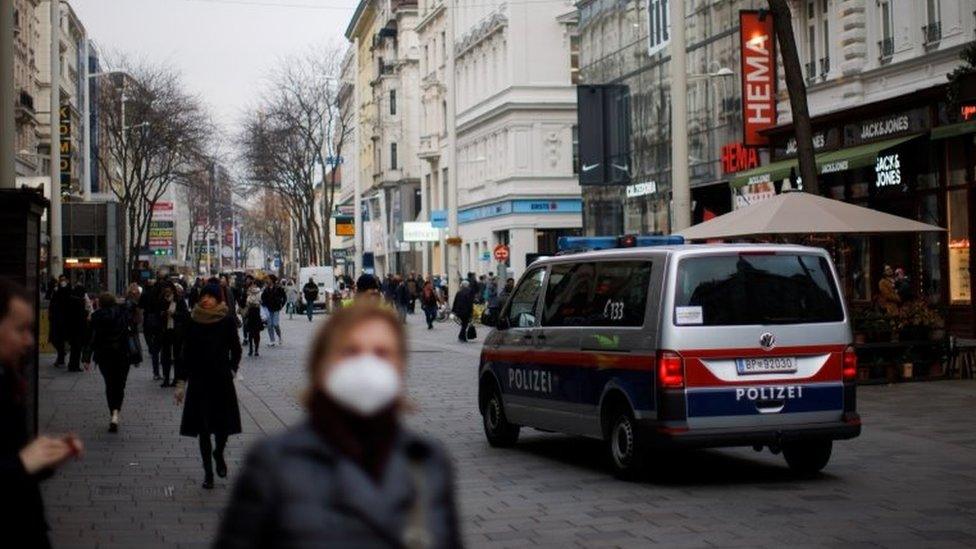
Austria has one of the lowest vaccination rates in western Europe
Carina, a yoga teacher in Vienna, is not vaccinated against Covid-19 and wants to remain that way.
So she is now under lockdown, like around two million other unvaccinated Austrians.
She is only allowed to leave her home for essential reasons like work or shopping for food, and is barred from cafés and restaurants. So I met her in a Vienna park, where she is allowed to take exercise.
Carina says she doesn't understand the rationale behind the lockdown and that it makes her feel sad.
"I was walking by some cafes this morning," she told me. "It's a bit strange to look inside and to know that I couldn't go in. It makes you feel really excluded, and ostracised."
"I'm one of these people that is made into the enemy," she said. "And that doesn't sit well."
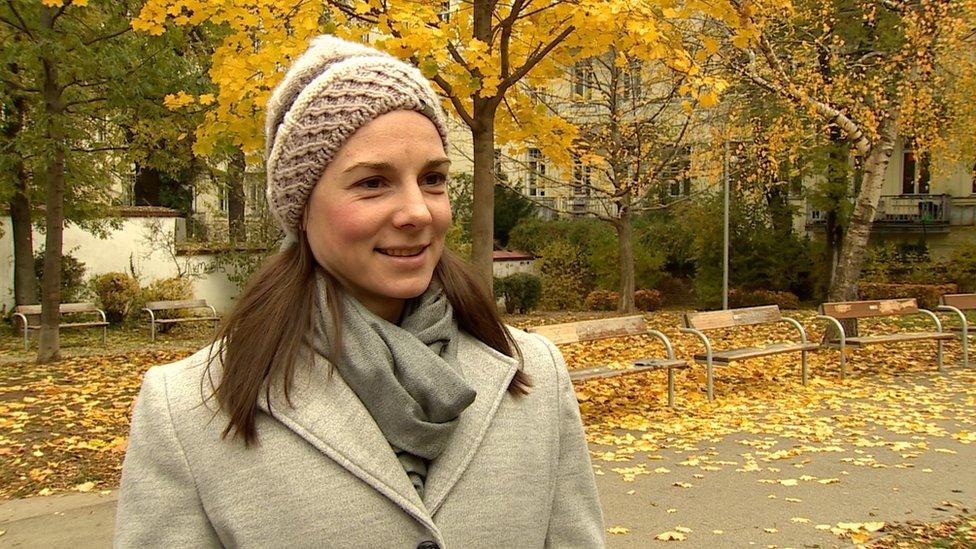
Carina (pictured) is one of the country's remaining unvaccinated
"I don't want people to get sick. I am careful. I get tested. I'm not at very great risk [from Covid-19] and I feel like it's a very personal decision. I understand people who do get vaccinated and when people don't want to get vaccinated."
There have been demonstrations in several parts of the country in protest against the lockdown.
Police say they'll carry out random spot checks on people in public places and fine anyone who can't show a certification of vaccination or recovery.
Around 65% of Austria's population is fully vaccinated, one of the lowest rates in western Europe.
The country is currently seeing the highest rate of daily infections for Covid-19 since the pandemic began.
Chancellor Alexander Schallenberg says the government was forced to act because of the surge in new infections.
He said the vaccination rate was "shamefully low" and would "keep us trapped in a vicious circle, from one lockdown to the next".
Since the measures tightened, more Austrians have been getting jabbed. Long lines have formed outside one Vienna vaccination centre. Some were coming for booster shots, others for their first injections.
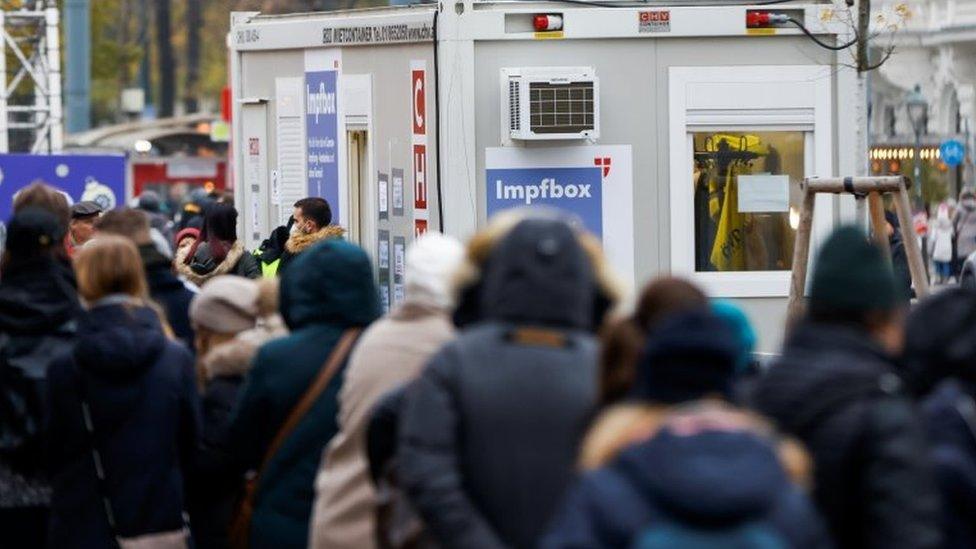
The lockdown measures will initially only last 10 days, officials have said
Dr Thomas Szekeres, head of the Austrian Medical Chamber, says he is hoping the vaccination rate will rise to 80% or more.
"We know that vaccination is the only way to decrease the number of infections," he says. "We know this from other countries. We hope that the lockdown for unvaccinated Austrians will be enough to decrease the number of infections. But the experts are not sure about that. Maybe we will need additional measures to reach the goal to decrease the number."
Many Austrians have welcomed the increase in vaccinations, but some are concerned the lockdown for the unvaccinated isn't constitutional.
Karl Weller, a Viennese businessman, told me he is very much in favour of the jab. "It is necessary for our health and our economy," he said.
"But I think it's a catastrophe, to divide between the vaccinated and not vaccinated. People start to become more and more angry and they are afraid."
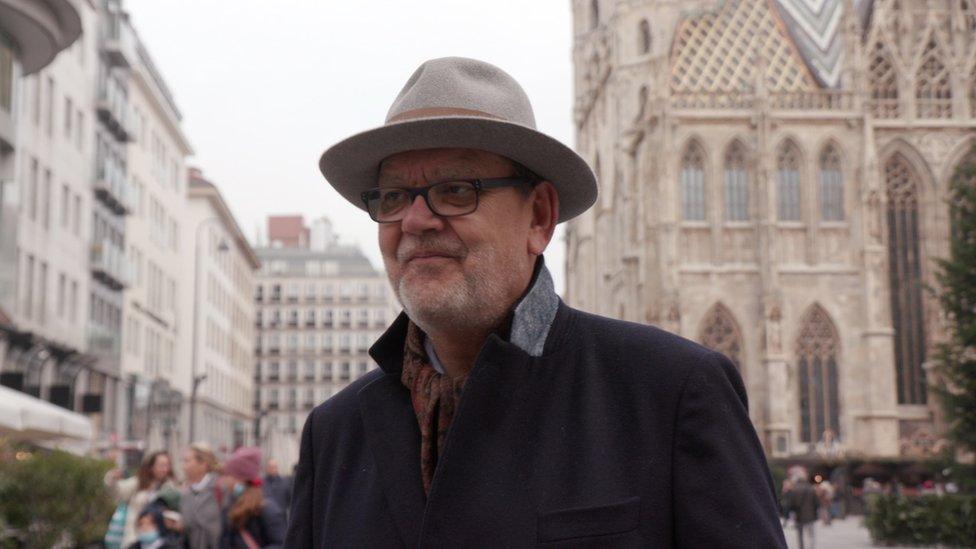
Karl (pictured) is among those concerned about the new policy
Shopping for clothes and other non-essentials is now only possible for the vaccinated.
Doris, who was out in central Vienna, said she was losing patience with those who refuse to get jabbed.
"The only solution is that we all have to be vaccinated. That's the only solution. Otherwise, we have the problem for quite a long time. And we really want to get rid of it."
Related topics
- Published13 November 2021
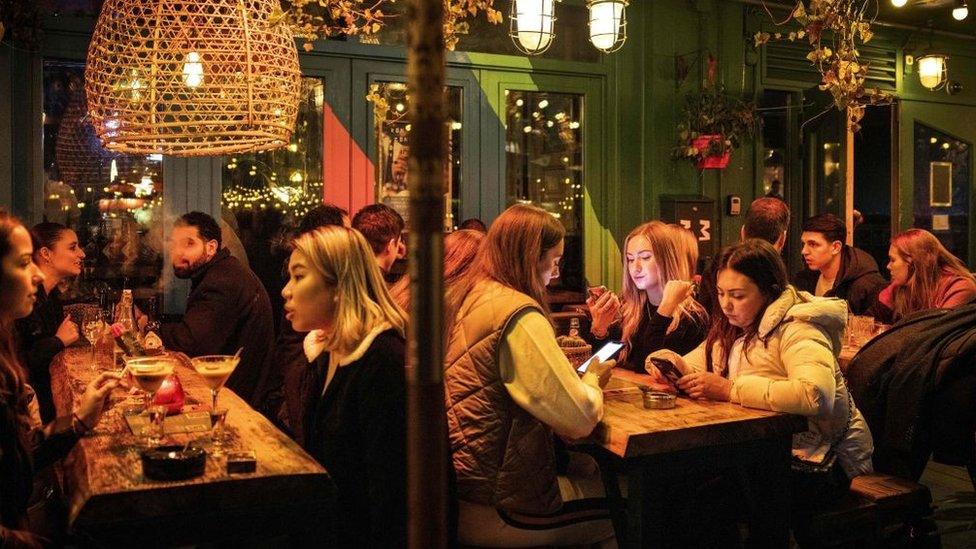
- Published13 November 2021
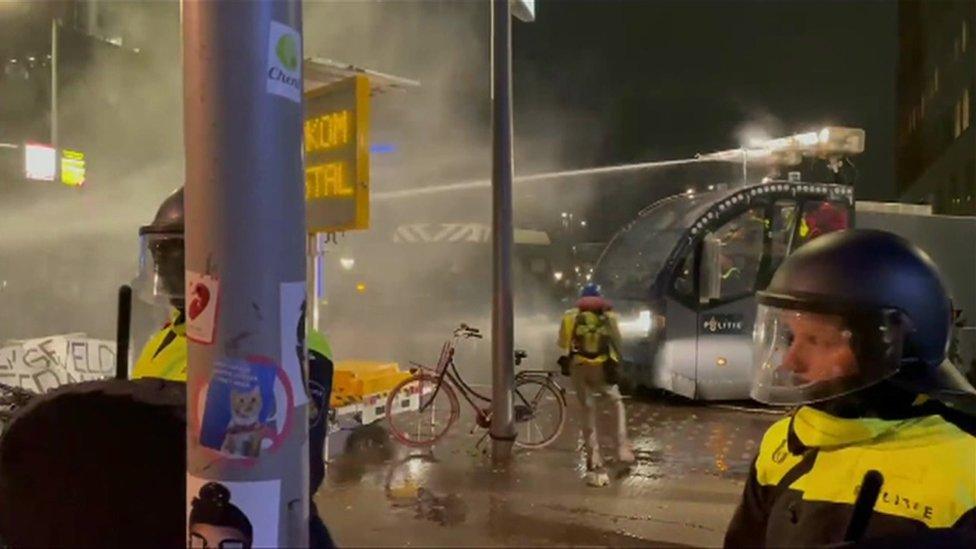
- Published9 November 2021
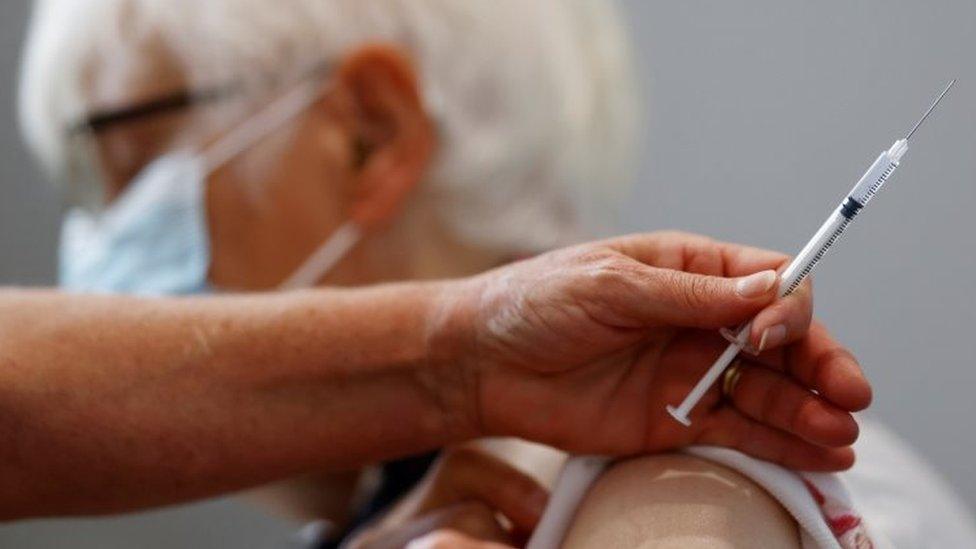
- Published5 November 2021
